There are many ways to see China. You can ride a slow train and absorb all that the country has to offer. You can hop aboard the high-speed rail and watch the endless expanse of the Chinese countryside flash by in a blur. You can fly from North to South, East to West. Frank Langfitt, a reporter with National Public Radio, chose the lesser trodden route during his time working as a China correspondent from 2011-2016: he drove a taxi.
In the course of driving people around Shanghai and other parts of East and Central China, Langfitt documented his experiences and his interactions with passengers from all walks of life in a fascinating travelogue slash meditation on modern China – The Shanghai Free Taxi: Journeys with the Hustlers and Rebels of the New China.
Langfitt, now based in London with NPR, has spent much of his recent professional life settling in, and attempting to understand, foreign countries.
“I had traveled through Europe with my family when I was just 10 – this was 1974 – and it made a big impression on me. When I became a reporter, I decided I wanted to see the world and witness history, but didn’t know where to go,” he tells us, giving the backstory behind his itchy feet.
“So, back in the early 1990s, I asked my dad. ‘China,’ he answered without pausing. ‘China has the world’s largest population, the world’s fastest-growing economy, and its foreign currency reserves are up to USD500 million. China is the future. It’s going to change the world.’”
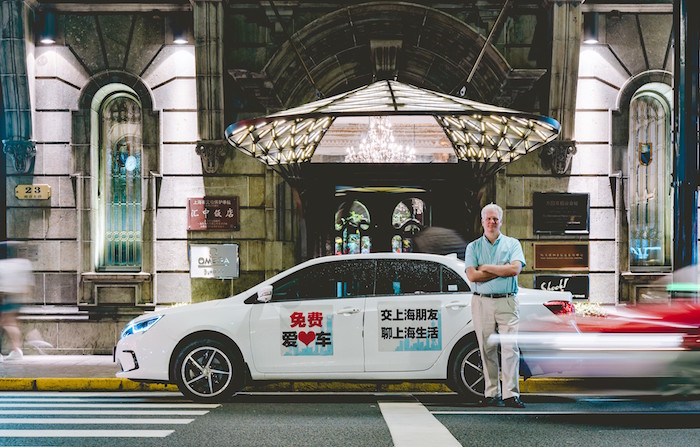
Image by Kuan Yang, courtesy of Frank Langfitt
And so, he headed East, not once, but twice.
Langfitt’s first stint living in China came between 1997 and 2002, when he worked as a China correspondent for the Baltimore Sun.
“My first visit to Shanghai was in the late 1990s, when it was still sleepy. I remember walking the Bund with Julie (Langfitt’s wife). Nearly all the storefronts were empty. There was furniture piled up amid cobwebs. Clothes hung in the windows of the Customs House. I said to my wife that one day the Bund would again be one of the world’s great waterfronts. I had no idea that that day was just a decade away.”
As Langfitt explains in the opening chapter of the book, foreigners in China are not allowed to drive taxis, so he creates a new business model – free taxi rides in exchange for conversation. Not a newcomer to the taxi scene (Langfitt was a cab driver in Philadelphia in the early ’80s), he quickly finds passengers who are both bemused by and willing to benefit from his unorthodox mode of transportation. Reference the signs that Langfitt has plastered all over his free taxi – Mianfei Aixinche (free compassion vehicle).
“I nearly rolled my vehicle trying to back up, and he absolutely did not care”
His previous experience of a much different China helps to put a lot of the recent development that has occurred in the country into context for readers. Langfitt guides us through topics like suzhi, the Chinese term used to describe a person’s inner character. He peppers his descriptions with elucidatory examples of how selfishness and competitiveness are affecting folks who live in and around cities like Shanghai, and makes reference to well-known examples of low suzhi, such as the dreadful hit-and-run incident that resulted in the death of a small child in Foshan.
“Suzhi came up because a taxi driver blocked me on a small rural road. I nearly rolled my vehicle trying to back up, and he absolutely did not care. I delved into the question of how people treat each other in cities because a psychologist I drove had the classic experience of falling on a street, and sitting in the road for 25 minutes and no one stopping to help her.”
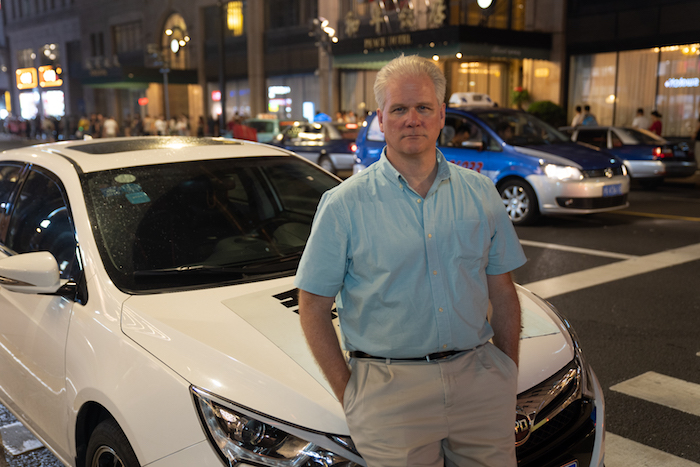
Image by Kuan Yang, courtesy of Frank Langfitt
While we are not lacking in books that address these phenomena, it is Langfitt’s skill with the written word and his ability to establish ideas through vivid examples – such as when he talks about Buddhist monks releasing fish into the Huangpu River, only for them to be captured once again by hungry, or entrepreneurial, fishermen farther downstream – that sets his work apart.
These quirky stories can, at times, have a bit of a negative ring to them, but this is anything but a negative book.
“I think the book comes at a very good time,” Langfitt says, “in that it provides readers a window for understanding the complexity, nuance and struggles of ordinary Chinese people at a time when the news is naturally focused on the tense geopolitics around China’s rapid rise.”
It is pretty clear, through our interactions with Langfitt, and also the very sociable means by which he aims to better understand modern China, that he is a talker, a social beast. While the parables that he tells do sometimes criticize societal issues in the country, he also shines a light on the people, the personal stories which shaped and now define the ambition, hustle and upward mobility of the Middle Kingdom. We can point towards characters like Guo, a mother who has overcome countless obstacles and setbacks to raise two successful lawyers, as an example.
Elsewhere, Langfitt addresses the competitive element in Chinese society through the story of a used car salesmen called Beer. While he expresses some distaste for Beer’s shady and dishonest negotiation tactics, he takes the time to establish Beer’s story, the origins of his funky name and the trials and tribulations that he faces on a regular basis living in Shanghai.
The essence of the story sees Langfitt chase down the Chinese Dream across provinces, from the city to the field. And what conclusion does he eventually come to?
“It’s harder to achieve, just like the American Dream today. There is not as much social mobility, especially if you are a migrant in Shanghai, as so many of my characters are,” he tells us, adding “I think many middle-class Chinese have a dream beyond money and national rejuvenation.”
You can find The Shanghai Free Taxi: Journeys with the Hustlers and Rebels of the New China on Amazon here.
[Cover image by Kuan Yang, courtesy of Frank Langfitt]
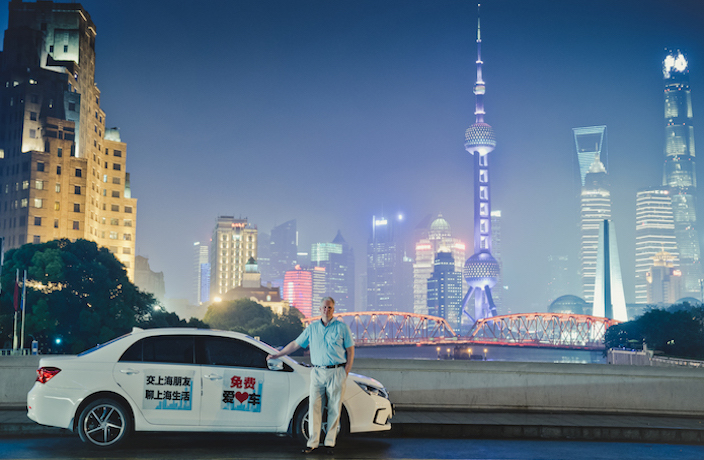




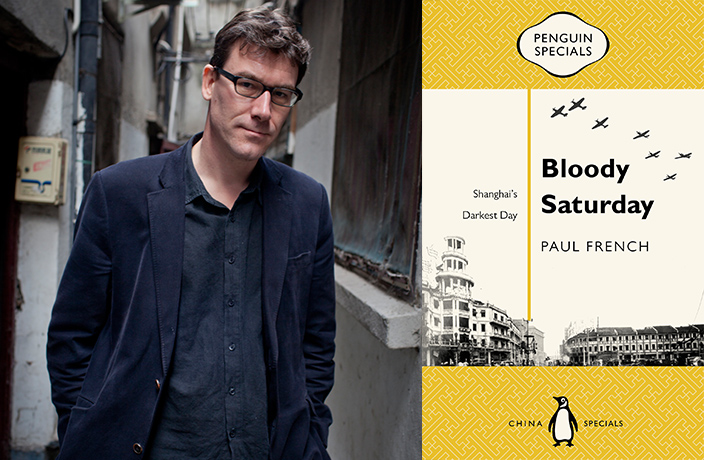
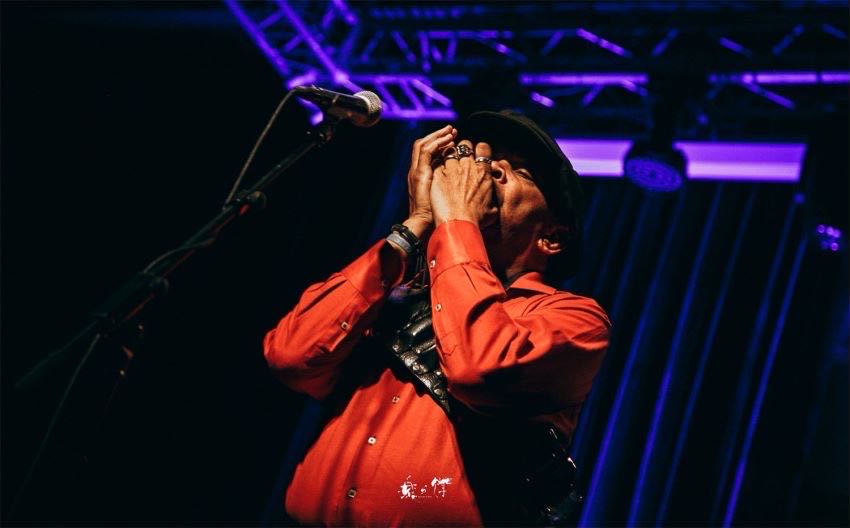
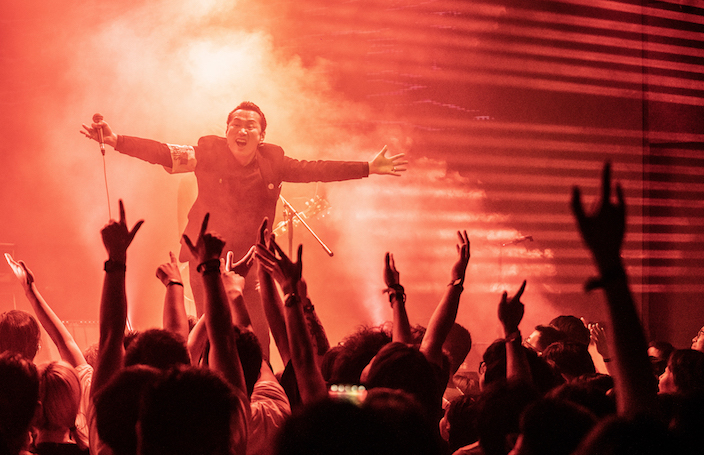













0 User Comments